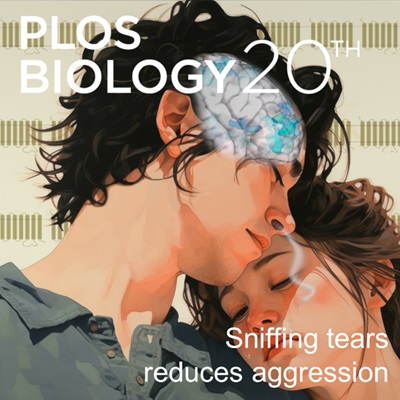不只是一辆垃圾车:在斑马鱼的胚胎发育过程中,不腐烂也起着作用。
IF 9.8
1区 生物学
Q1 Agricultural and Biological Sciences
引用次数: 0
摘要
在真核生物中,阻碍核糖体运动的缺陷mrna会通过no-go衰变(NGD)快速衰变。在这一期的PLOS Biology上,Ishibashi和他的同事们扩展了NGD的作用,并揭示了斑马鱼中这一过程的新的内源性靶点。本文章由计算机程序翻译,如有差异,请以英文原文为准。
Not just a garbage truck: No-go decay plays a role during embryo development in zebrafish.
In eukaryotes, defective mRNAs that impede the movement of the ribosome are subject to rapid decay via no-go decay (NGD). In this issue of PLOS Biology, Ishibashi and colleagues expand on the role of NGD and reveal new endogenous targets for the process in zebrafish.
求助全文
通过发布文献求助,成功后即可免费获取论文全文。
去求助
来源期刊

PLoS Biology
BIOCHEMISTRY & MOLECULAR BIOLOGY-BIOLOGY
CiteScore
15.40
自引率
2.00%
发文量
359
审稿时长
3-8 weeks
期刊介绍:
PLOS Biology is the flagship journal of the Public Library of Science (PLOS) and focuses on publishing groundbreaking and relevant research in all areas of biological science. The journal features works at various scales, ranging from molecules to ecosystems, and also encourages interdisciplinary studies. PLOS Biology publishes articles that demonstrate exceptional significance, originality, and relevance, with a high standard of scientific rigor in methodology, reporting, and conclusions.
The journal aims to advance science and serve the research community by transforming research communication to align with the research process. It offers evolving article types and policies that empower authors to share the complete story behind their scientific findings with a diverse global audience of researchers, educators, policymakers, patient advocacy groups, and the general public.
PLOS Biology, along with other PLOS journals, is widely indexed by major services such as Crossref, Dimensions, DOAJ, Google Scholar, PubMed, PubMed Central, Scopus, and Web of Science. Additionally, PLOS Biology is indexed by various other services including AGRICOLA, Biological Abstracts, BIOSYS Previews, CABI CAB Abstracts, CABI Global Health, CAPES, CAS, CNKI, Embase, Journal Guide, MEDLINE, and Zoological Record, ensuring that the research content is easily accessible and discoverable by a wide range of audiences.
 求助内容:
求助内容: 应助结果提醒方式:
应助结果提醒方式:


